Arthur Smith Brings Passion to Reality
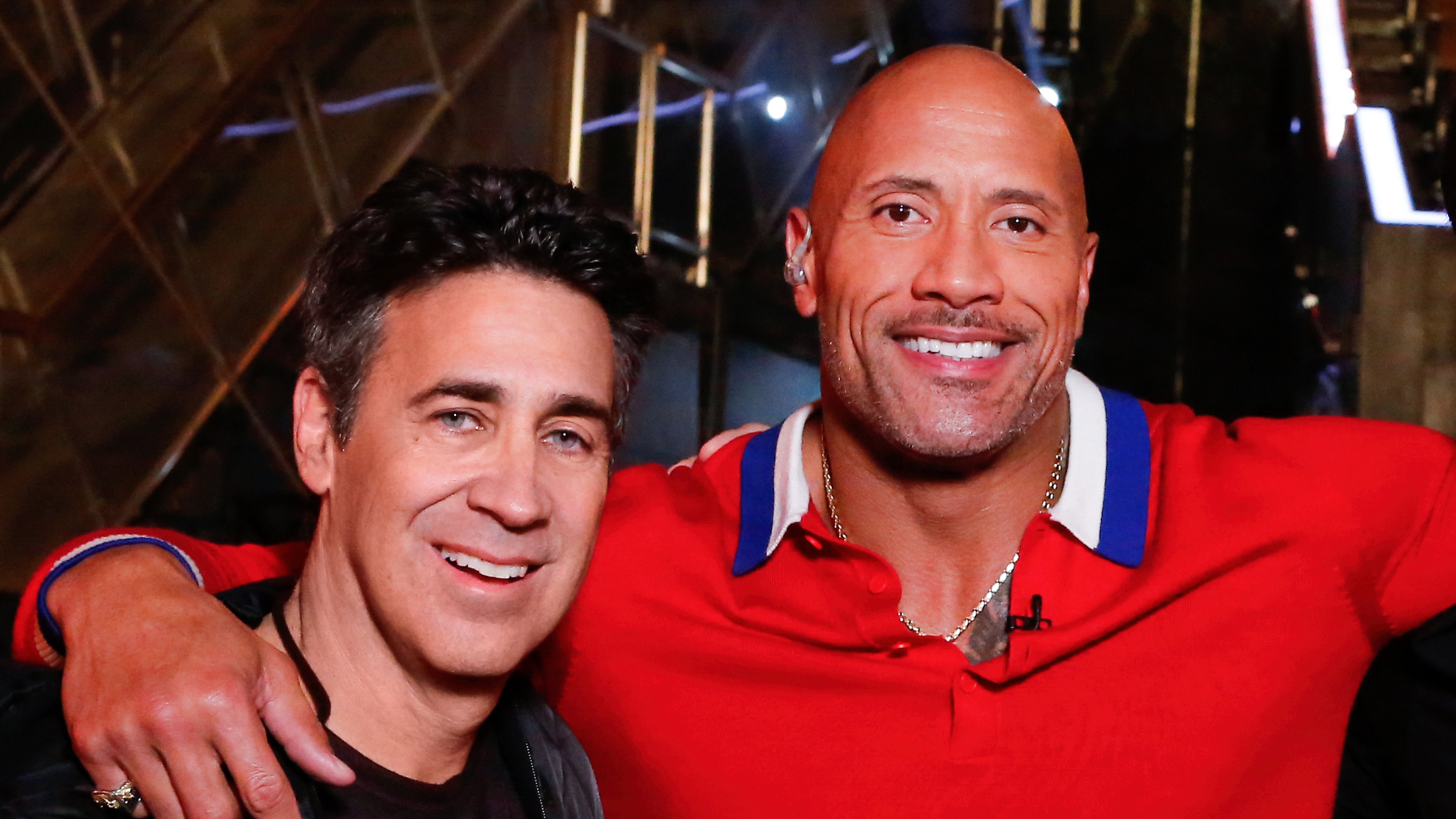
The smarter way to stay on top of broadcasting and cable industry. Sign up below
You are now subscribed
Your newsletter sign-up was successful
Dwayne “The Rock” Johnson took to social media in September 2018 to detail a dream he had about creating a platform for people to showcase their best athletic self, but which needed the “perfect” partner to turn the dream into reality.
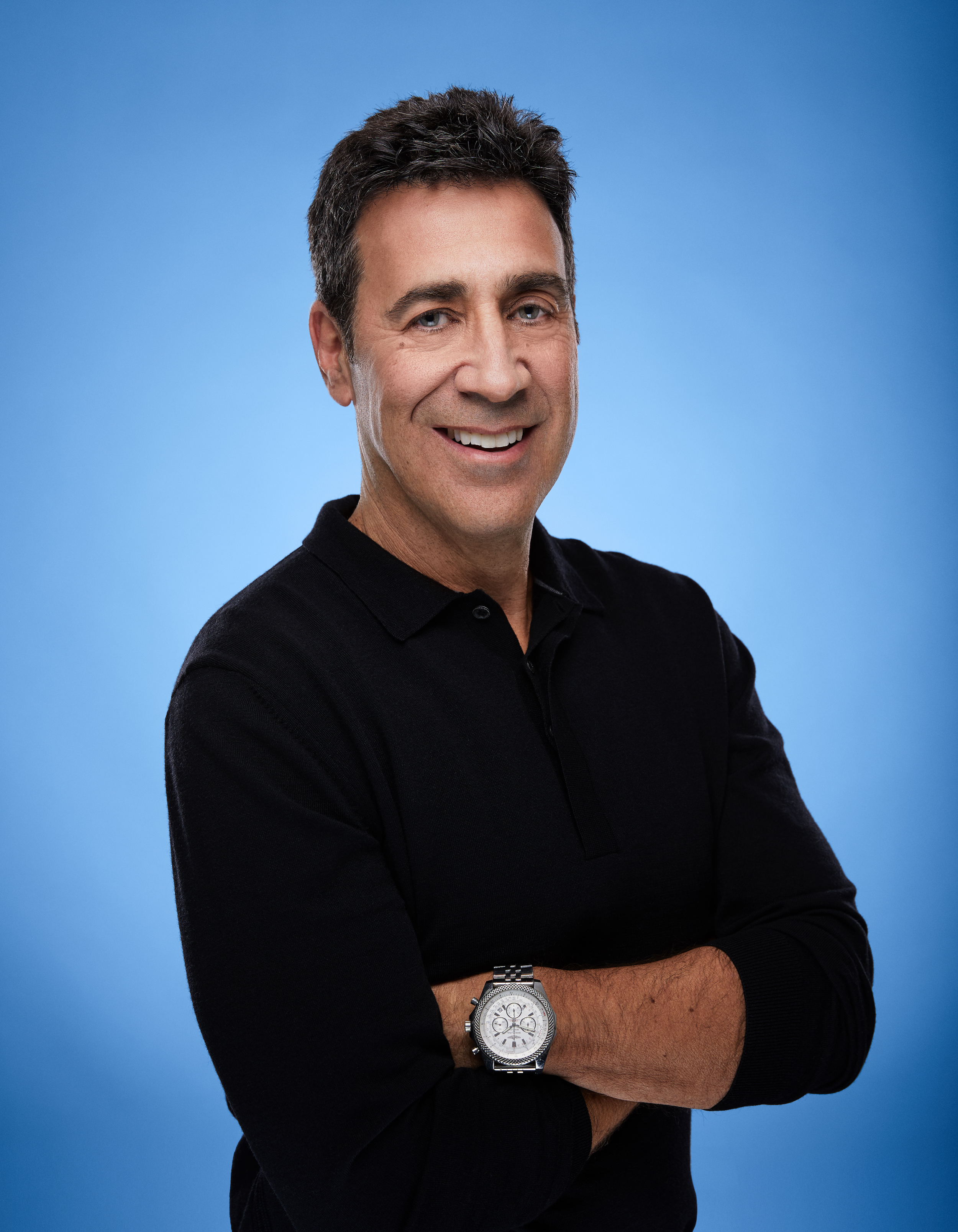
“That partner is Arthur Smith,” Johnson declared in the post. Johnson’s dream platform turned into The Titan Games, NBC’s successful freshman competition series that the former WWE star launched in 2019 with Smith, the founder of production company A. Smith & Co. (ASC) and chairman of ASC parent company Tinopolis USA.
Titan Games, in which everyday people compete in endurance-based mental and physical challenges, is one of more than 180 reality, unscripted and documentary series produced under the tutelage of Smith and his ASC banner since the company launched 20 years ago. Several of his shows, including Fox’s culinary cookoff Hell’s Kitchen and NBC’s obstacle course-based series American Ninja Warrior, helped define the genre of competition-based reality shows.
“Arthur understands that great storytelling requires ultimate dedication and an unrelenting desire for excellence,” said Meredith Ahr, NBC Entertainment president of the alternative & reality group. “When I am working with Arthur, whether it is on American Ninja Warrior or The Titan Games, I am keenly aware that I am dealing with a producer who thinks big, wants to win, and will put in the daily reps to ensure that every detail of the production is first class and a reflection of our collective ambition.”
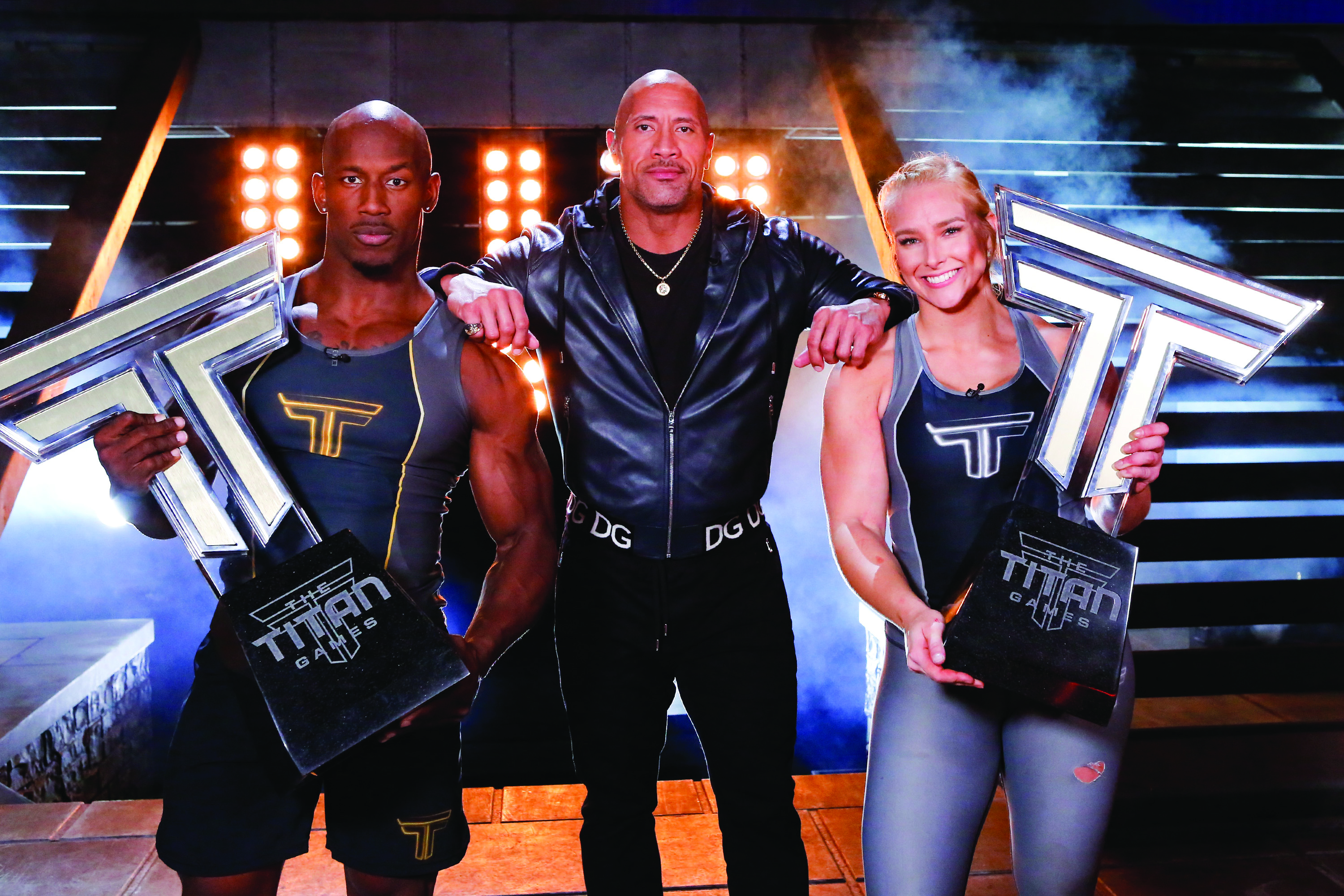
From long-running shows like TV One’s documentary music series Unsung to new series like TLC’s off-the-grid reality show Welcome to Plathville and streaming service BET+’s docuseries American Gangster: Trap Queens, the Canadian-born Smith is known for his ability to create successful unscripted content that entertains viewers while bringing out the best qualities of the world-class talent and everyday people who participate in his shows.
“Arthur Smith and his team really understand how to make great television,” said Jason Ryan, executive producer in charge of production for Unsung, which Smith has produced since its debut in 2008. “People know TV One for Unsung [and Smith’s] knowledge and passion for the show has really made the show special.”
Mike Darnell, president of unscripted and alternative television at Warner Bros., who worked with Smith on a number of projects including Hell’s Kitchen, said Smith has the uncanny ability to turn the simplest of ideas into a successful production.
The smarter way to stay on top of broadcasting and cable industry. Sign up below
“He’s an extraordinarily talented and driven producer,” Darnell said. “He’s unbelievably collaborative. Over the years, if I had an idea or a nugget of a concept, I’d go to Arthur and he would take it and make it work in a way that very few producers can.”
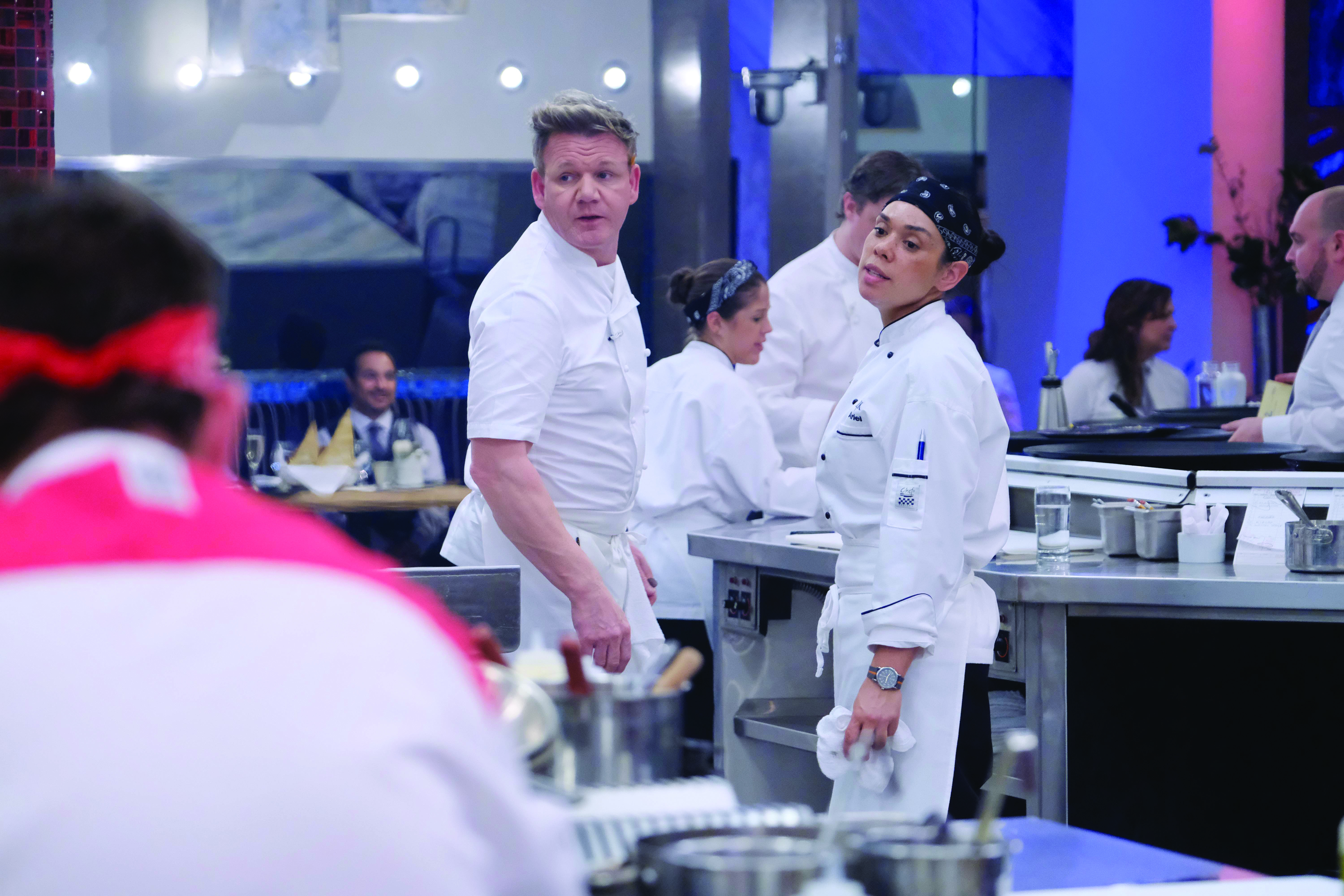
Smith cut his production teeth in the sports production at Canada’s CBC, where he produced the 1984 and 1988 Summer Olympics, and with Fox Sports in the late 1990s, helping to launch the company’s first regional sports networks. In between his sports producing stints, Smith got his first taste of the entertainment business as senior VP of Dick Clark Productions in 1990.
“Coming from such an unconventional and atypical background in sports has allowed him to approach more entertainment programming in a slightly different way,” said Brandon Riegg, Netflix VP of unscripted originals and acquisitions, who has worked with Smith on Death by Magic as well as two other yet-to-be announced shows.
While his passion is for producing shows, Smith is equally comfortable in the C-suite as chairman of Tinopolis USA — which bought A. Smith & Co. in 2011 — where he oversees a portfolio of Emmy-nominated content from such companies as Magical Elves. Under Smith’s leadership, Elves and ASC combined for three of the six 2019 primetime Emmy nominations for Outstanding Reality Competition series: Elves’s Top Chef and Nailed It! and ASC’s American Ninja Warrior. Smith is also comfortable with top talent. He has collaborated with such celebrities as Ellen DeGeneres, who will host Ellen’s Home Design Challenge for HBO Max; actor Rob Lowe, host of Fox’s unscripted series Mental Samurai; and celebrity chef Gordon Ramsay, host of Hell’s Kitchen.
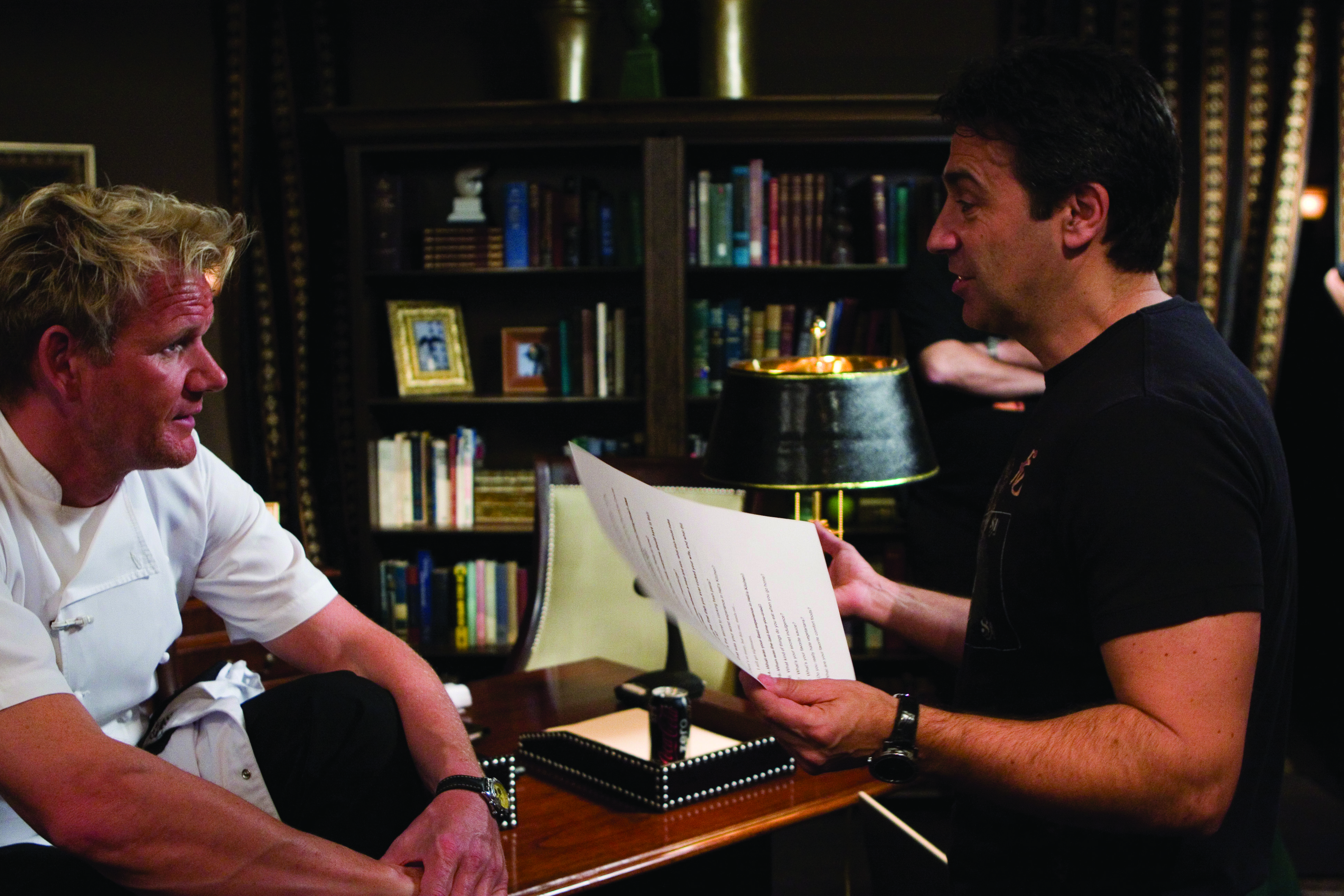
“He’s great with talent,” Darnell said. “When I first brought Gordon Ramsay out here, he had never done an American television show, and Arthur and him got along amazingly. I also think that he’s a very fast learner. He’s terrific at taking a concept and making it into a reality.”
Johnson in his Instagram post also showered Smith with praise, saying that while “my big head may be in front of the camera, this man [Smith] is the magic maker.”
Smith’s prolific TV series production accomplishments along with his infectious enthusiasm and passion for producing has earned Smith and his company, A. Smith & Co., B+C’s Producer of the Year award for 2020. Smith spoke with B+C senior content producer R. Thomas Umstead about his company’s 20-year run of success, as well as his vision for the future. Here’s an edited transcript of their conversation.
B+C: What would you consider to be the show that put you and A. Smith & Co. on the map?
Arthur Smith: When I started my company, I didn’t know what reality television was, I just knew nonfiction was my role. I used to read encyclopedias as a kid before there was the internet. I always read biographies. I was totally into nonfiction, and so I knew I was going to be producing something in the doc/reality genre. The first big network show that we did was Paradise Hotel, and it was funny because [then-Fox president of alternative TV] Mike Darnell had put $50,000 into a development deal with a company called Mentorn and wanted me to be a consultant. Eventually, I ended up producing it. For Paradise, we were doing two shows a week and we were turning it around in days. When I look back, the staff from Paradise Hotel are all people who are producing relationship shows now, so it was kind of like Paradise High School.
The other one has to be Hell’s Kitchen. The interesting thing about Hell was at that time, in 2004, food was in a much different place in America. I never really knew Gordon, who was a star chef in the U.K. but no one really knew who he was here. I saw a tape and said, but I don’t like the show. We eventually did the show, but Fox was kind of nervous about it. It actually sat on the shelf for like six months before they put it on. Eventually they did, and it launched on Memorial Day and won its time period. In its third season, it was the highest-rated show in America. It wasn’t the highest rated reality show, it was the No. 1 show over America’s Got Talent, and it really opened the door for food on television and really changed it. We just did our 20th season of Hell’s Kitchen and it’s interesting because, while the show has changed and Gordon has become one of the biggest stars on television, the food scene in America has changed. It’s now all kind of connected because Top Chef, which is the show that Magical Elves produces which is part of my group, launched a year later.
I think the combination of what Hell’s Kitchen was doing on Fox and all of a sudden people are watching food and everything else, and then what Top Chef did on Bravo, I think this was kind of a tandem combination. Hell’s was first though.
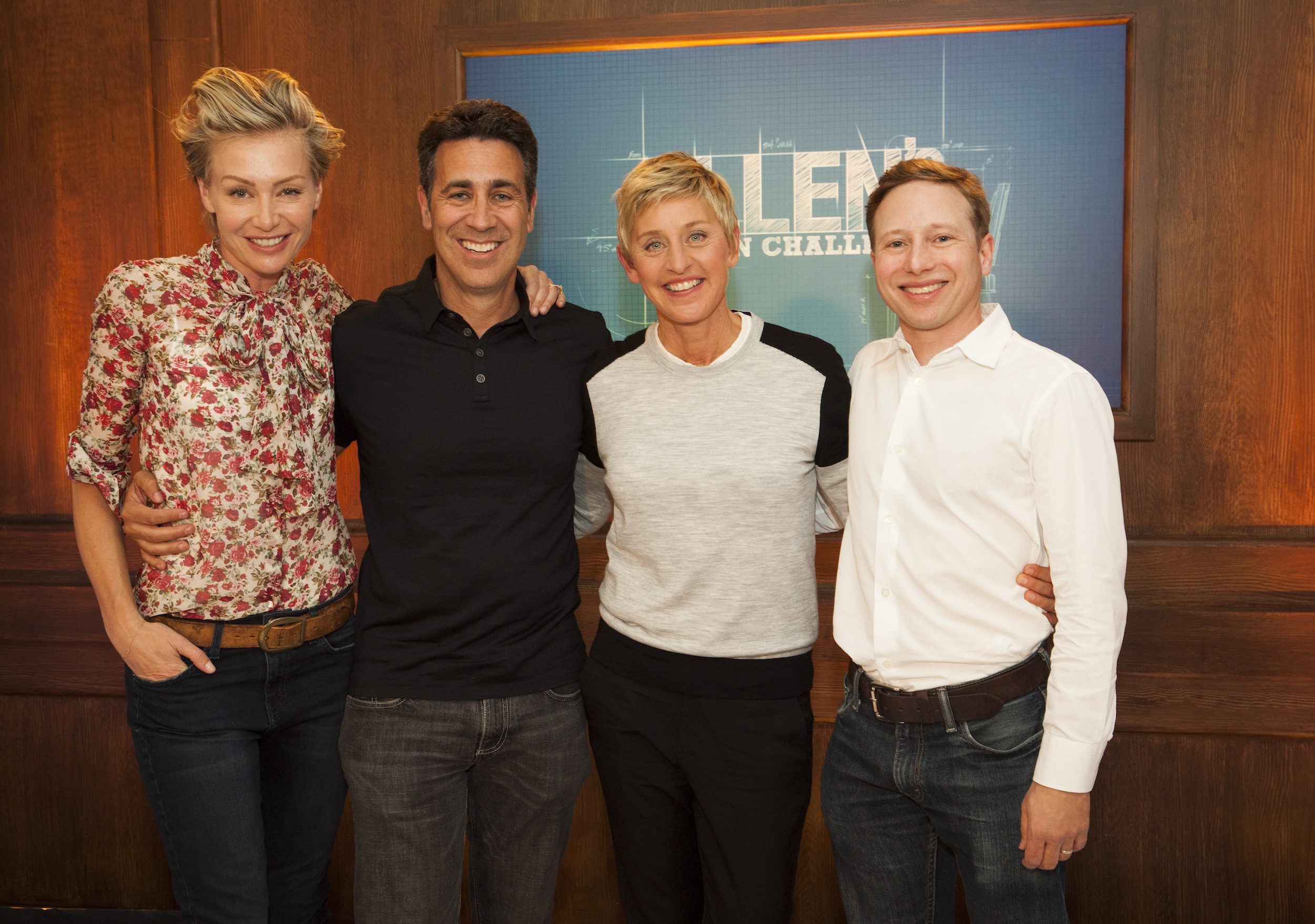
B+C: This year, you’re celebrating the 20th anniversary of your production company, A. Smith & Co. Growing up in Canada, did you ever consider the fact that you might be a successful producer in America?
AS: I’ve loved the entertainment business since I was a kid and I knew that was for me. Nobody in my family worked in the entertainment business and I had no connection to it, but I knew it was my calling. I just had to figure out what it was.
I was an actor as a kid in Canada, but I was always more interested in what was happening behind the scenes. I did a couple of feature films and a couple of guest spots on situation comedies for CBC, but I’d always run into the control room and ask what was going on, so eventually I studied film and television production. That’s how I ended up in production. I didn’t plan to start a production company — I just knew I loved the business.
B+C: What part of the business did you love the most?
AS: When I really, really think about it, the happiest times were when I was making shows. It’s still the thing that motivates me — yes, I run a business, and yes, I’m chairman of a couple of companies and everything like that, but my joy in life is still producing, and that’s why — and people are always surprised — that I’m still on set. I [was recently] in Atlanta for three weeks to be with Dwayne Johnson on The Titan Games. I shot last year for two months in Las Vegas with Gordon Ramsay for seasons 19 and 20 of Hell’s Kitchen. All the business that I do and all the development that we do is so I can have the joy of making the show.
B+C: While your focus has been on the entertainment field, you really got your start on the sports side with CBC. How did your experience in sports influence your entertainment endeavors?
AS: Growing up in Canada, CBC Sports is a premier organization — as good as any organization in the world. In Canada, we have an inferiority complex about our comedies and our dramas. But sports, we’re very, very secure in that. I decided that that was where I wanted to work. I had a crazy break during my final year at Ryerson [University in Toronto] when I met a gentleman who attended Ryerson that was the executive producer of CBC Sports. I literally stalked the guy. I waited outside of his office and one day, he came out, and I said, ‘Can I have 10 minutes of your time?’ And he goes, ‘Who are you?’ And I said, ‘I’m Arthur Smith. I’m in Ryerson. You went to Ryerson.’ I was feeling pretty good about myself: I was on scholarship and I had won some awards for some student films that I did. I didn’t know any better and sometimes ignorance is bliss. I ended up spending 90 minutes with him. He said I could be a production assistant, but I said I wanted to be a producer.
He said I would have to start as a production assistant and you have to start in local news. I told him I didn’t think this is for me, but he called back three weeks later and I ended up starting as a junior producer.
Within six months, I was the replay director on Hockey Night in Canada, and then I went on to produce the [1984] Los Angeles Olympics, which was my introduction to L.A. Then I became CBC’s executive producer, and somehow I ended up as head of CBC Sports. But the whole time I was producing sports, entertainment was my first love. And so my whole approach to sports was always about the story, music and graphics and really setting up the game.
When I was at Fox Sports, we used to always gather the production teams for a meeting every year and I would always say, ‘We make our money as producers when the action stops.’ I said: ‘We’re going to do a great job covering the game, but how we set up the game and the stats that we put in and the stories that we tell, and all that extra stuff, that’s where we make the money. The game is the game. You’re not in control of it.’

B+C: You mentioned that CBC’s Los Angeles-based Olympics coverage was your first exposure to the city, but what was your first exposure to the entertainment business in the States?
AS: CBC was an unbelievable place to learn and I love sports, and the interesting thing, is when I became head of CBC Sports I got a lot of attention in the States. And God bless Dick Clark. He found me and got me my green card and was my mentor. I was still close with Dick until he passed away. Even when I was running [A. Smith & Co.] Dick and I would still talk. I learned a lot about him [and] how he ran his production company. The interesting thing is that I moved to L.A. never, ever thinking that I’d work in sports ever again, and I was good with that because I’d had a whole sports career. And then years later, I ended up with Fox Sports, and that was an unbelievable time.
We launched more than 20 regional sports networks. It was an amazing time of growth and Rupert [Murdoch] was amazing. But I wanted to go back to entertainment. I actually signed a five-year deal, but I had a four-year plan — I just didn’t tell them about it. When I got to my last year, I said I wanted to start my own company. About a month before I was leaving, they came to me and said, ‘There’s a show [Smith] created as the head of programming called, You’ve Got to See This, which was a sports clip show.’ They said, ‘Why don’t you take it for your company?’ They gave me an order for 65 episodes for a show and I hadn’t even started my company. I didn’t even have an office yet. They didn’t have to do that, but we ended up doing 200 episodes.
B+C: Obviously the sports business has grown exponentially since you were at Fox Sports. Does sports have more influence within television now, compared to 25 years ago?
AS: In this world of programming clutter, sports still reigns supreme. It’s still so impressive. Sports continues to be such a valuable commodity to any of the major studios and networks because it’s still the thing that people watch live; it’s still the thing that brings everybody into the tent.
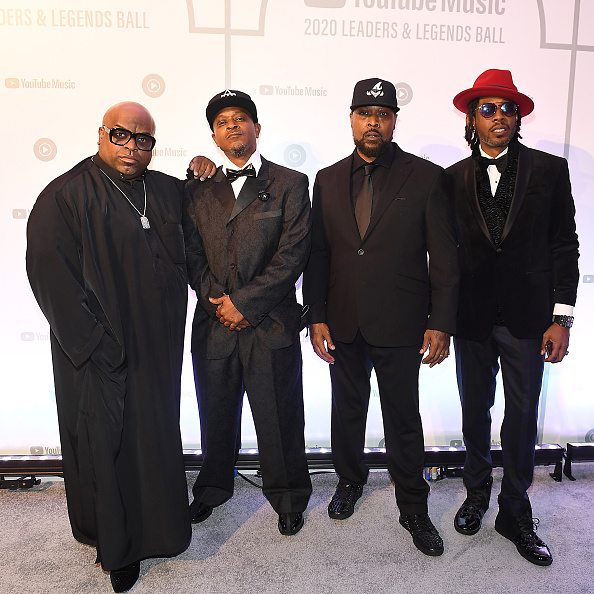
B+C: Your shows such asHell’s Kitchen,American Ninja WarriorandUnsunghave all exceeded industry standards for longevity. What is it that you look for in a show that you think leads to such long-running success stories?
AS: Well, there are three things every hit television show must have: format, great casting and execution. I’ve seen shows that have great format and bad talent, and I’ve seen shows that have great talent but not great format. You really have to have all three. In today’s world, it’s changed a little bit because one of the challenges in today’s marketplace is the amount of programming that’s on. So not only do you have to have all three, you need to have freshness. You need to have some fresh point of view on your show. It could be something new formula-wise. So those are, to me, the key ingredients for a hit show. Those are the things we look for in our new shows.
The other thing when I think about our shows — and we think we have a little bit of a secret sauce we never reveal — but the one thing I will say is television has to make you feel something. Content has to make you feel something. If it doesn’t make you feel anything, you’re not watching it. Sometimes it can make you angry. Sometimes it can make you happy or sad or mad at a character. But you feel something.
That really applies with regards to scripted programming, but I don’t think it’s any different in the nonfiction space. It has to make you feel something. The other thing that we work really hard on is to get invested in characters, no matter what it is. Also, it’s not only important that you have the freshness and all of the things that I’ve talked about, but you have to choose the right network.
As producers, all that we want to do is make and sell shows. But you’ve got to keep yourself in check because you may take an idea but sell it to the wrong place. And by the way, many times, great shows don’t work because they’re on in the wrong place. When we were developing Welcome to Plathville, we took it right to TLC because we knew that was the place where the show would be up in the ratings every week. We’re still waiting on season two, but it was the right place for it.
B+C: How does that criteria apply to sports-themed shows likeAmerican Ninja WarriorandTitan Games, where athletic competition is the center of the series?
AS: Actually, Ninja is a great example of how we’ve been successful by getting invested in people. That is the whole emphasis of the show, because there’s no reason for an obstacle course show to be on in primetime at NBC. We’ve made the obstacle course into a metaphor for life, and it was purposeful and it was planned.
I’m a big sports fan and I love everything. I love the new sports and I love the traditional sports. So how do you take an obstacle course and make it special? Well, you make it a story about people. I had great training because I worked on three Olympic games. The first thing we did, when we first got together to talk about Ninja, even when it was on [former cable channel] G4, was that we have to make viewers care about the people, because then when they run the course it’s a whole different level. The visuals are great and the challenges and the obstacles that we come up with are great, but it’s in other people. It’s about the stories that we tell.
B+C: You have also created documentary programming such asUnsungandAmerican Gangsterthat is focused on more targeted and diverse audiences. Where do those shows fit in the overall production strategy for ASC?
AS: In whatever we do, it’s the same thing. It’s getting invested in characters; it’s making you feel something. That applies to Unsung and Gangster, but I really do love everything. So for me it’s a joy. When I think back, we did Welcome to Plathville for TLC in the same year that we did Titan Games for Dwayne Johnson. We did American Gangster the same year we did Hell’s Kitchen. Now, all of these shows are very different, but the dream from the very beginning was to offer a wide and varied palate. Yes, it’s good business, but it really came from the passion first. I’m as proud of Unsung winning the NAACP Image Award six times as I am about Ninja and its Emmy nominations. To be a little clichéd, they are all my children, and I love all of them the same.
B+C: Having said that, you don’t have one show that is your favorite across your portfolio?
AS: Not a chance. There are shows that I personally spend more time on, but that doesn’t mean I like them anymore or any less. I wasn’t on the day-today development of Plathville, but I love the fact that we did it. I love the story of these people who live off the grid and what the show was and everything else like that.
B+C: You’ve been a TV producer for more than 20 years. Given today’s plethora of platforms and networks, is this the best time in your career to be in the business as a producer?
AS: It is. More money is being spent on programming than ever before, so it is definitely the best time to be a producer. However, it’s probably a little harder to have a hit now than it was before. There are more places to sell, but it’s probably harder to get your show to stay on. You really have to be strategic with stuff like that. We are a lot more cautious when we take a show out, who we pitch it to, etc. We think about it a lot more.
When reality was more of a novelty, you could sell a lot more things and the audience would accept more things because there was so much freshness out there. But now, you have to work harder. You have to work harder to develop it, but if you get it, you can sell it.

B+C: What will it take for producers to remain successful in this business over the next five to 10 years as the industry continues to evolve?
AS: I think that the biggest thing that we have to do as producers in partnership with networks is take chances and risks. The audience loves when we take risks and take chances. When you think back over the years of some of the biggest hits in unscripted and scripted, they were things that were ahead of their time. I believe Hell’s Kitchen was a risk. And I believe moving Ninja, on NBC — because it started on G4 — was a risk. I remember talking about other people’s shows: When Dancing with the Stars was first brought to America everyone laughed at it and said, ‘Oh, it’s ballroom and it’s cheesy’ and everything, but it was fresh and different. The Masked Singer is fresh and different. I think the audience craves it and I think it’s more important than ever before. Anytime I hear something that sounds very similar, very familiar, even in our development, I think it’s an uphill battle. I think we’re going to be challenged by the consumer who has so many choices. We have some things that we’re working on right now that are crazy and risky. I just hope the networks will be receptive, and I think when networks take chances, they often pay off.
B+C: You sold A. Smith & Co. to Tinopolis in 2011. What made you pull the trigger on the deal?
AS: We had been approached by people starting probably in 2006 or 2007. I love our culture and I love the way it works here — it is a company run by producers and we do things because we’re passionate about them. It’s not always about the bottom line; we do make money, but we have a culture here and I was very protective of it. Like I said, we were approached by a number of people before that and got very close a couple times, but I said no because it didn’t feel right. The Tinopolis guys approached us and it was interesting because Mentorn, who I did Paradise Hotel with, is part of this Tinopolis Group, which is kind of weird that it all came around again. There was something about that, and I really liked the guys. So, I sold my company but I’m just a partner in another company. That was very important to me: I never wanted to be somebody collecting companies. I never saw myself selling my company to a group so large that I would just be this unit, and the Tinopolis guys didn’t have anything in the United States. I’m talking to them about culture, and they said, ‘Run the business the way you want to.’
I’m still a major shareholder in the company, so I feel like I got an investment in my company. There is the opportunity to grow and it just felt right. It’s been eight years and we have such a great relationship with the guys in the U.K. We’ve been very careful about the American companies we’ve selected and the Magical Elves being a part of it. They were very, very similar to us in terms of how they ran their business and their focus on the highest quality shows.
B+C: So with Tinopolis now behind you, do you approach the business differently in terms of the networks you talk to and the shows you’re creating?
AS: Our development is very robust, however, I have this philosophy: If you want to sell more shows, you develop less programs. If you pitch less programs, you’ll sell more shows. I found a number of years ago that if we develop the things that we’re most passionate about and really made those great, so those pitches were iron-clad. It’s kind of like the kid who sends out a hundred resumes as opposed to really focusing on three or four and really doing a white paper and dotting the I’s and crossing the T’s. Things don’t leave the building until we have figured it out.
Then right from the very beginning, our shows come in on budget. We only do the highest quality of work, we’re responsive and we’re a service company. I don’t feel like we’re an old company, however, when I look around, there’s not a lot of 20-year-old companies in the entertainment business. I think that has to do with the way we operate. Obviously they have to be good programs, but we have to be good partners. All businesses have relationships and reputations and stuff like that. It’s really important. We will go the extra mile on a pilot or a series to be a good network partner.
B+C: Some of today’s unscripted/reality programming is salacious and controversial. Does that worry you at all in terms of the future prosperity of the genre?
AS: I think the audience has woken up and they’re turning their back on things that don’t feel authentic now. I’m happy to see the audience is weighing in. Listen, there’s still stuff that’s out there and that’s fine. The buzzword today is authenticity, and it matters. When it’s overly manipulated, it kind of feels like old-school cheese reality, and I think the audience doesn’t want it. I think that’s behind the successes recently for Netflix and for a network like TLC, which is very authentic — strange people, but authentic — that it doesn’t feel overly manipulated.
B+C: What would you say is the biggest regret of your career?
AS: I don’t believe in regrets, however, when I was working on Hell’s Kitchen and Desperate Housewives was on the air I was thinking, ‘There’s got to be a reality version of this.’ And I located this really well-known jeweler who lived in Scottsdale. I had an idea for a Real Housewives of Scottsdale series — I didn’t call it that at the time, but I ended up getting busy with Hell’s and I never pursued it. Then I watched all the Real Housewives launch.
B+C: Other thanReal Housewives, what show currently on the air do you wish you developed?
AS: I’m sure there are others I would’ve liked to have developed that are on, but that’s one I saw but I just didn’t act fast enough. By the way, so many times in the nonfiction business, it’s not only about having a good idea, it’s also moving quickly. Because there’s so much energy not only in this, but in New York and all around the country where people are thinking of the next idea. Everyone’s online, watching the same stuff, reading the same things. Chances are — and it’s happened to every producer over the years — you have an idea and then they read about the same idea in Broadcasting+Cable or Multichannel News.
B+C: Have you ever considered producing scripted shows?
AS: Sure. I’m a nonfiction guy and I love nonfiction, but we’ve played around in the mockumentary area, we’ve played around in the sketch area. There is a feature that we have in development right now that I can’t talk about, but it’s something that comes out of a true story. So I think that’s the type of thing we would do. I think we’re more inclined to get into features and maybe a scripted drama that’s based on a true story. But there’s so much joy in what we do and I really feel like we’re still diversified in the types of things that we have in nonfictional.
B+C: As the streaming companies begin to move into the non-scripted arena, do you see that developing as a major area for you?
AS: I love the streaming business. Between the two companies, I think we have more shows with Netflix than anybody and we love working with them. ASC has two shows with Netflix that haven’t been announced yet that’ll be on this year. And the Elves have Nailed It! and Sugar Rush and there’s another one coming — they’ve had great success there. We also have a development deal with Amazon, and that hasn’t been announced yet but we are in development with them. It was interesting when Netflix first started, they didn’t get it. It was more premium, dramatic series that they got into but now they’re finding a lot of success in the unscripted space and I think that’s only going to grow. I’m glad they’re there.
B+C: Are you concerned about how the linear cable business will continue to evolve?
AS: Yes, I am concerned for a number of the cable networks, and I know they are too. But this is indeed the best time to be a producer, and there is more money to be spent on production. There is growth in streaming and there’s a bit of consolidation on the linear side, but the net effect is still more and still better content. Of course I think about it, and when we were talking about where shows go, you have to think about where your show has the most chance of success. We want them all to be successful.
B+C: Looking over your career, what’s the one thing that you’d point to and say, this identifies who I am and what I want to do?
AS: I’m a very emotional person. I’m a very passionate person. I’ll go back to something that I said before: my greatest joy is making television that makes people feel something. Right from the very beginning when I was in sports and was making those emotional Olympic packages, I said this is my calling. That’s why Ninja is such a joy for me.
I’m so proud of the show because it was such a long shot and now we’re getting nominated for Emmys. I’m so proud of it because I think it plays to what people care about most, which is their fellow human beings. I want to make shows that make people feel something and care. That, to me, is what drives me, is what makes me most excited. When the viewer watches something, they’re not analyzing why they feel, they just know they feel and then they’re compelled to watch. Our job is to make them feel. Sometimes it’s the cut of music and sometimes it’s that emotional bite and sometimes it’s the way it’s shot. Those are the tricks that make the game so much fun. It’s still the thing that gets me most excited.
R. Thomas Umstead serves as senior content producer, programming for Multichannel News, Broadcasting + Cable and Next TV. During his more than 30-year career as a print and online journalist, Umstead has written articles on a variety of subjects ranging from TV technology, marketing and sports production to content distribution and development. He has provided expert commentary on television issues and trends for such TV, print, radio and streaming outlets as Fox News, CNBC, the Today show, USA Today, The New York Times and National Public Radio. Umstead has also filmed, produced and edited more than 100 original video interviews, profiles and news reports featuring key cable television executives as well as entertainers and celebrity personalities.

